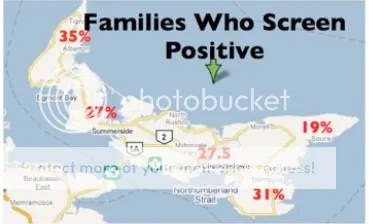Mandy is one of many who have asked us – “what do you really stand for?”.
Are we all for schools taking the jobs of ECE’s? Do we not know how much ECE’s care? We reply by saying we are in favour of giving our kids the best start. But what do we mean by that? Too unclear for many whose jobs are on the line. So today I will try and describe how I think the system could and should be designed and then we can all see how this might affect us all.
In my earlier posts, I have done my best to explain what I see as the problem, so let’s start there before we launch into the solution.
As I see the problem, mothers have been stripped of the emotional and physical support that all mothers need and have received until modern time. This support was delivered, as for all primates, by the extended family. There were many others to take on the work, to offer encouragement, to coach and to protect. Modern life has stripped away nearly all of this support leaving many mothers isolated – even in a marriage where both have to work.
A baby’s whole development in life – how they see their place in the world, how they learn, how they behave, how they eat – is set in the first 3-4 years of life and is set by how it interacts emotionally with its mother. This process of wiring begins in the uterus. The baby is moulded by her mother’s emotional state. If the mother’s emotional state is in good shape, then the baby gets the best wiring for life.
So what we know now, is that they key to the baby’s future is how the mother feels. Is she at her wit’s end? Is she stressed all the time? It does not matter how strong you are. If your reality is a one bedroom apartment and two kids and no job and no future, you are not going to have much energy left. The same is true for many middle class mums with a job, a working husband a 1,000 miles away form your mum. Is she assured that she is in a safe place herself?
More and more mothers, no matter their income are isolated and hence stretched to the limit emotionally.
We can’t turn back the clock and have the life of the 1900’s. What we can do is see this issue of isolation and emotional attachment. This, not daycare or kindergarten, is the foundation of a healthy child’s development. You all know this. You all start your own discussions about the future with this knowledge. But then most, go on to advocate things that little to do with this reality.
Our job now is to see this gap and thoughtfully find ways of filling it in the context of the world we live in today.
Our job now is to design a system that offers the newly pregnant with advice and emotional support. To build on the support, so that the mother feels safe after the baby is born. To offer the mother a real community that can replace the old extended family.
To offer the toddler the same kind of loving and fun community that all kids have in the traditional setting. Where they explore safely the world.
So the key issues are to find ways to re-offer ALL mothers on PEI the kind of emotional and physical support that puts them in the strongest emotional state from fertilization to when the baby is at least 3.
For babies, the key is to ensure that they have at least someone who is actively engaged and attached to them until they are 4.
For 4 year olds, it is key to ensure that they can have truly exploratory learning – play based learning until they are 6. Push a top down curriculum too early and you close the child down – especially boys. Once you close them down, they don’t wake up.
A system based on this science needs to be designed and built. This is the debate that we need to have now. It is not about who cares the most. It is not about your pay, though that is important to you. It is not about who owns a daycare now, though that is important to an owner. It is not about schools, though that is important too.
The first order of business is to design a continuum of service to mothers and to babies that has the best chance of giving most of them the best start in life.
Remember, what we do now does not. Our vaunted system is not doing the job. Be honest. Look at the results. Is this success?
But I think that we can build a system that does work for our kids and that works for all of us. There will be plenty of work in a universal system of support for mums and kids. But if all we do is fight over the ruins of a system that does not work, we are condemned.



 Posted by robpatrob
Posted by robpatrob 








